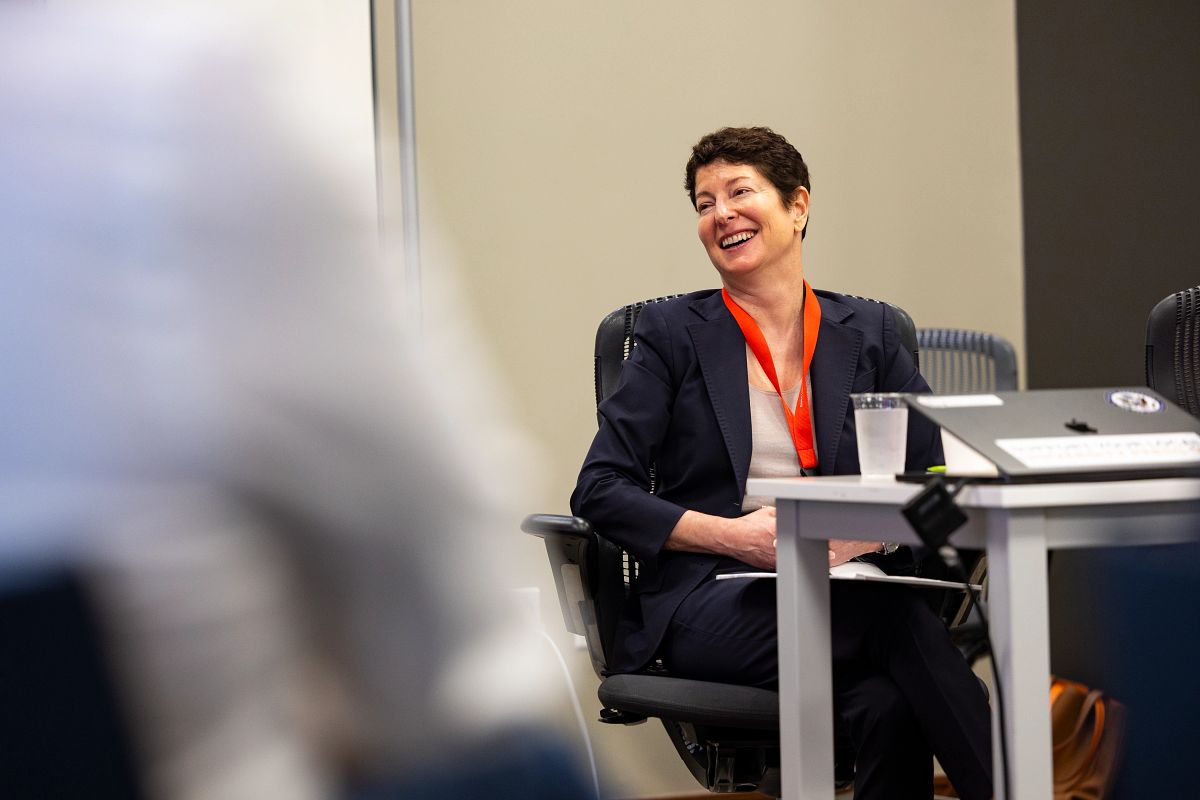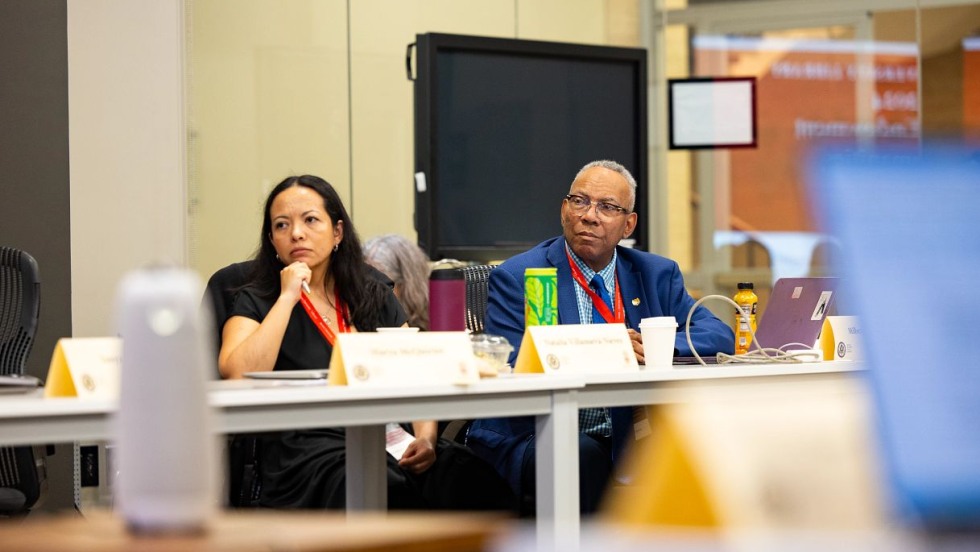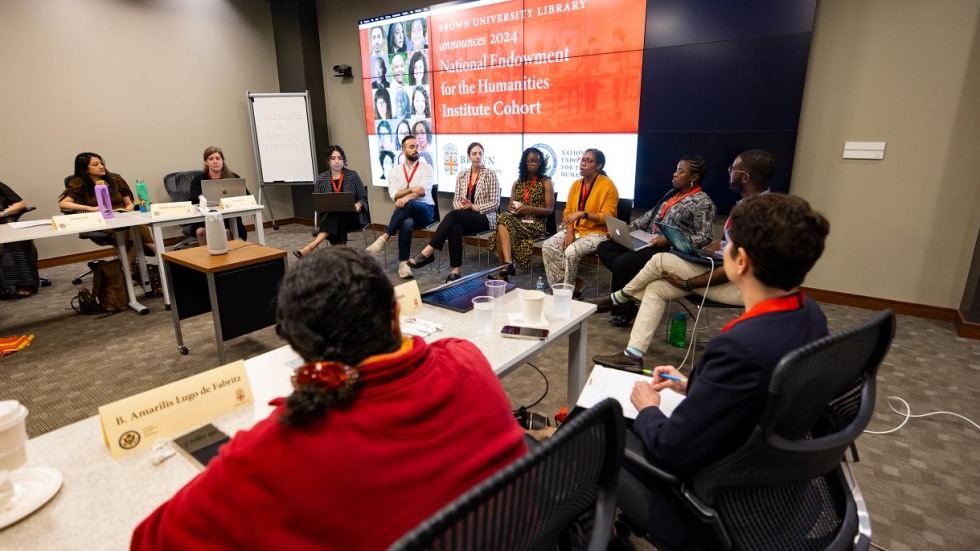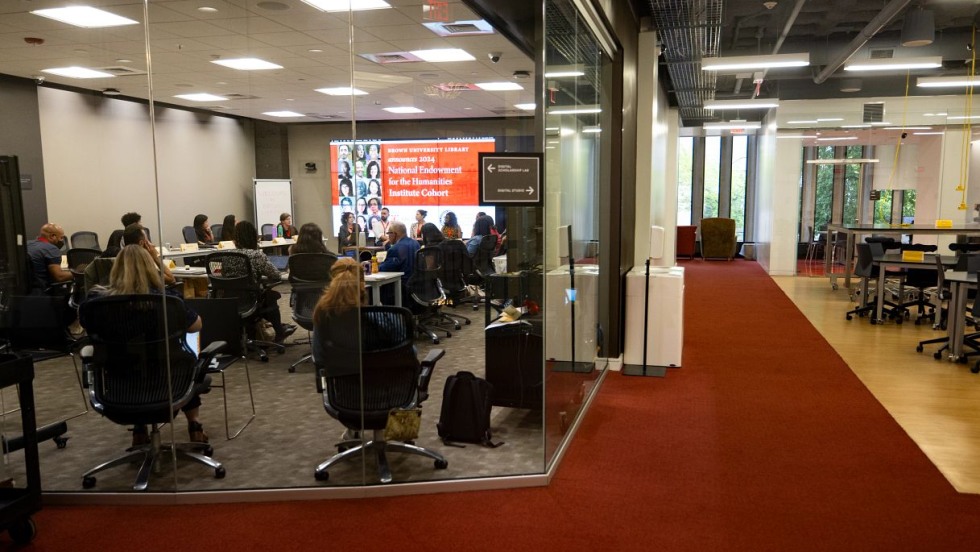PROVIDENCE, R.I. [Brown University] — Fifteen humanities scholars from across the nation gathered in Brown University’s John D. Rockefeller Jr. Library this week with a shared mission: Explore best practices for authoring and publishing a first-rate, digital-first monograph and leave with the skills to create their own.
While the focus of the workshop was shared by all participants, the topics they hope to explore in their monographs were wide-ranging — everything from U.S. National Parks ephemera to the presence of Negro leagues’ in American baseball history, to the war-related displacement of a wild seed bank in Syria.
First held in 2022 and now in its second iteration, Brown University Library’s three-week Born-Digital Scholarly Publishing: Resources and Roadmaps institute shares the expertise library staff have developed in digital publishing through first-of-its-kind training for scholars who wish to produce digital publications but may lack the necessary resources, expertise or capacity at their home institutions.
“This institute is so integral to Brown’s mission and to the library’s mission because as educators, we want to share our knowledge with the world,” said Allison Levy, director of Brown University Digital Publications. “Our goal is to rethink the scholarly monograph, and make scholarly work more accessible, in order to effect big change and to see impact across a variety of communities.”

Open access scholarly digital publications, which the institute helps scholars develop, make research and expertise available free of charge to all audiences, including those from outside of higher education, she added.
Housed within the University’s Center for Digital Scholarship, the institute is held in hybrid format and available to Ph.D.-level scholars at all ranks, with several slots prioritized for participants from minority-serving institutions and historically Black colleges and universities. This year’s attendees represented 13 schools, including the University of New Mexico, Norfolk State University and Winston-Salem State University.
The National Endowment for the Humanities has twice funded the institute with generous grant support, enabling all participants to attend free of cost.
“Our first criterion is trying to reach the scholars who would not otherwise have access to this type of training,” Levy said. “There is a pressing need to offer this professional development opportunity for humanities researchers — and to amplify and to further expand the range of voices and perspectives represented in born-digital scholarly publication.”
Digital publication for first-rate scholarship
This year’s program kicked off on July 8 with two weeks of live online learning before the cohort members arrived in Providence on July 22 for a week of intensive in-person instruction. Each scholar will receive additional project support in the coming months.
During the online portion of the institute, participants were introduced to resources and strategies for digital publishing from Brown scholars and invited guests, including editors from dozens of university presses. Topics included an overview of publishing platforms, design considerations, copyright policies and funding opportunities.


